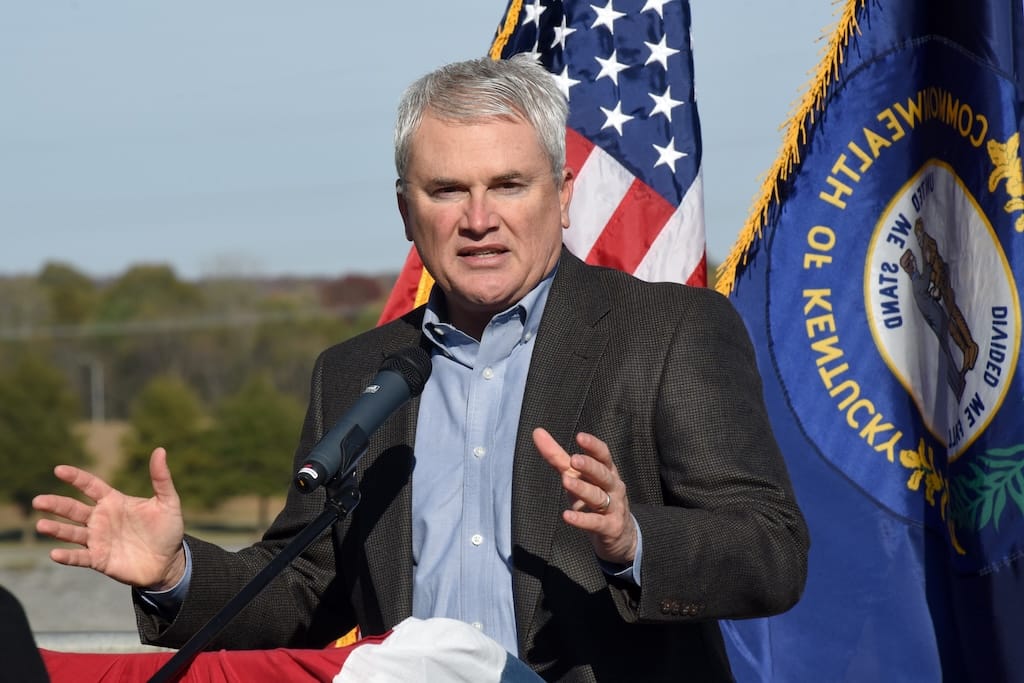House GOP Leaders Plan to Put Pressure on Communications Regulators, Post-Chevron
Republican lawmakers have opposed many Biden administration telecom policies.
Jake Neenan

WASHINGTON, July 18, 2024 – House Republicans are leveraging the Supreme Court’s reversal of Chevron deference to put more pressure on the Federal Communications Commission as the agency pursues rulemakings unpopular with GOP lawmakers.
“Given the Biden administration’s record of agency overreach, we are compelled to underscore the implications of Loper Bright and remind you of the limitations it has set on your authority,” GOP lawmakers wrote to FCC Chairwoman Jessica Rosenworcel on Thursday.
The court’s June opinion in Loper Bright Enterprises v. Raimondo reversed the forty-year-old precedent of deferring to agency interpretations of ambiguities in the law, known as Chevron deference. It came on the heels of a 2022 decision in which the court articulated a more expansive version of its major questions doctrine, which prevents agencies from acting on matters of “major political or economic significance” without express authorization from Congress.
House Energy and Commerce Committee Chair Cathy McMorris Rodgers, R-Wash., and House Oversight Committee Chair James Comer, R-Ky., asked eight agencies – including the FCC and the Commerce Department – for lists of rules, adjudications, and enforcement actions that might be affected by the decision, whether a challenge is ongoing or not.
Energy and Commerce Committee Republicans have made clear in oversight hearings that they oppose many regulatory actions out of the Democratic-controlled FCC and the National Telecommunications and Information Administration, the Commerce Department agency tasked with handling the Biden administration’s $42.5 billion broadband expansion program.
Republican FCC commissioner Brendan Carr – also a critic of much of the Biden administration’s telecom policy – cited Loper Bright in his dissent from an FCC order earlier Thursday morning and has spoken favorably about the decision, calling the development a “significant moment that we at the FCC need to pause and think about.”
Thursday’s letter is also likely to make ISPs and other telecom carriers happy. They've taken to federal courts to challenge a number of FCC rules, including flagship Biden administration efforts like preventing digital discrimination and restoring net neutrality rules.
Broadband providers have also taken issue with some rules from the NTIA. They’ve balked at the BEAD program’s affordability requirements and said they go beyond the agency’s authority. Energy and Commerce Republicans last week opened a separate probe into NTIA's communication with state broadband officials over affordable plans for eligible low-income subscribers.
“As the Committees of jurisdiction authorizing and overseeing [both agencies], we assure you we will exercise our Article I legislative authority to draft clear statutes that we expect you to follow,” the letter reads. “The Committees will ensure that the Biden administration respects the limits placed on its regulatory authority by the Court’s Loper Bright decision.”
The letter also asks agencies to provide a list of all judicial decisions in which a court relied upon Chevron to defer to an agency reading of a statute. The Loper Bright decision said that “mere reliance” on the standard was not by itself justification for revisiting a past decision.
Asked about Loper Bright’s potential impact on agency rulemaking at a press conference Thursday, Rosenworcel said, “I continue to have confidence in the staff of the Federal Communications Commission and their ability to read the record and follow the law. That's what we've done historically, and that's what we'll do going forward.”









Member discussion